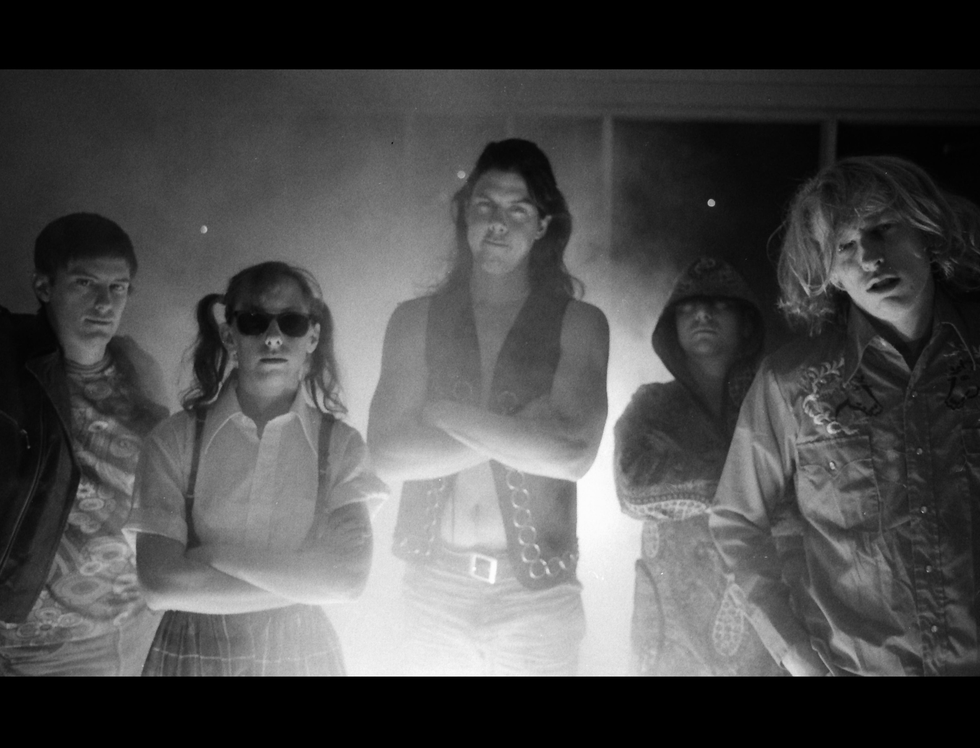SXSW 2012
SXSW discovery: Canadian duo Whitehorse puts an indie spin on the ContinentalClub
Canadian duo Whitehorse has a sound check that looks more like a Portlandia sketch than anything the Continental Club has seen before. But the painful ten minutes of “less guitar, more vocals” was worth it. Even for a succinct forty-minute set.
Luke Doucet and Melissa McClelland took the Continental Club stage during Wednesday night’s No Depression SXSW Showcase with a case or two of instruments in hand. Everything from a stripped down drum kit, guiro and multiple guitars to a keyboard and old school phone receivers attached to mic stands appeared from those treasure chests.
It was clear from the set up that Whitehorse would be different than the rest of the No Depression Showcase (a bill of female-led groups, heavy on harmony, light on rock). Whitehorse’s breed of roots music diverges from the clean harmonies and folky hooks that are expected of an Americana showcase.
And though the duo definitely capitalizes on solid, dark country vocals and impeccable instrumentation, Whitehorse juxtaposes those country chops against an inventive, indie use of sampling and electronic loops for each song.
I guarantee you it's enough to turn the tide for any indie kid hanging at The 'hawk.
Whitehorse's set started with the powerful stomp of a bass drum and subsequent beats from Doucet’s percussion army — all recorded and looped to play back live during the songs. His hook-heavy beats and guttural guitar licks were offset by McClelland’s chilling vocals, and frequent use of that phone receiver to create a chorus effect looped into the songs just like the percussion.
During the set, Doucet and McClelland played too many instruments to count, sometimes even several guitars within one song. Watching the two on stage was watching a well-choreographed piece with enough ad lib to keep it authentic: each loop, each new sound, an integral part of the performance.
On stage, Whitehorse is electric. The duo is like an edgier, dirtier version of The Civil Wars, but with no theatrics, and real chemistry — Doucet and McClelland are actual partners. Just like Americana's sweethearts, Doucet and McClelland pulled the club into their intimate performance. But they did it without waving their arms and employing tricky vocal arrangements: They did it with gritty passion, hard-hitting beats and techniques that fall outside of the roots movement.
The showcase was forty-minutes of phone receivers, sampling and loops that weren't gimmicky at all — just a way to reinvigorate an already stellar meeting of musical passions.
Take note that Whitehorse's self-titled debut album (just released in August 2011) captures more folk styling than their live performance. Stand out originals include the grungy groove "Killing Time Is Murder" and the rock-infused "Passenger 24." It's rounded out with an apropos Johnny-and-June-esque cover of Bruce Springsteen’s "I’m on Fire."
Put it on repeat. Then remember to see Whitehorse the next time they journey down to Austin — we'll just have to wait and see if they stay the course on the country circuit or make a move to the indie side of town.

 Butthole Surfers are a chaotic band and surprisingly lucid documentary subjects. Photo by Pat Blashil
Butthole Surfers are a chaotic band and surprisingly lucid documentary subjects. Photo by Pat Blashil